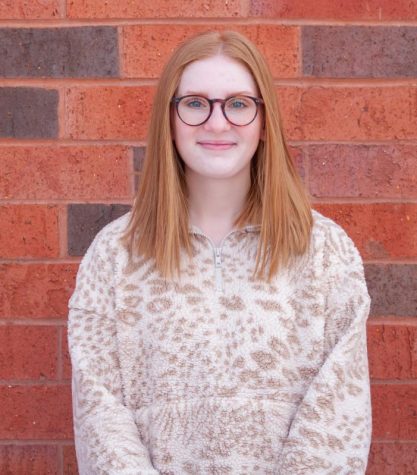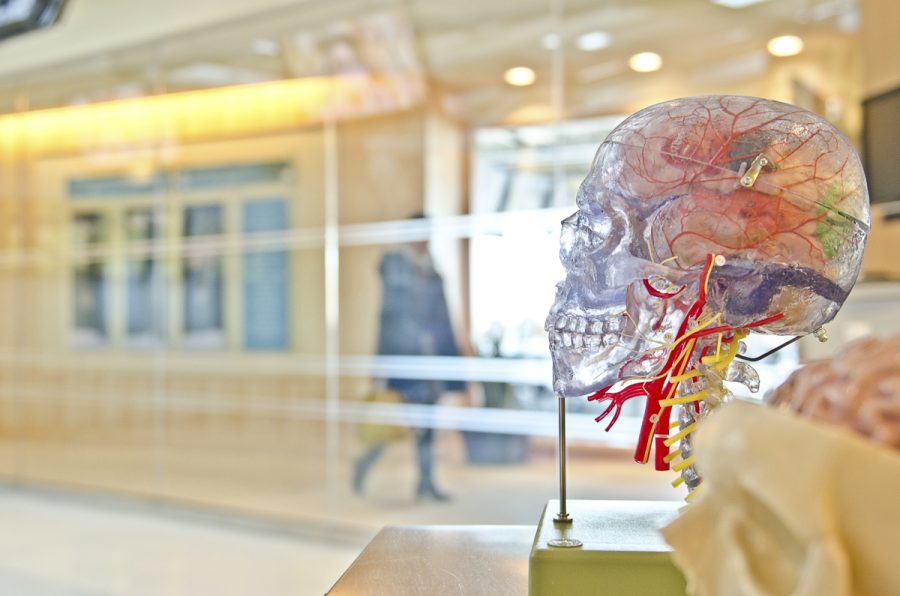Blugold Brain Injury Group works to support victims of brain injury
Blugold members educate others on caring for victims
Photo by SUBMITTED
BBIG is a peer support group for both graduate and undergraduate students in UW-Eau Claire’s communication sciences and disorders program
A traumatic brain injury is deemed just that — traumatic — and they are a leading cause of disability among children and young adults in the United States.
An estimated 5.3 million people are living with a permanent TBI-related disability in the United States today. Each year, an estimated 1.5 million Americans sustain a TBI — of which 80,000 to 90,000 people experience the onset of long-term disability.
Brain injuries are a chronic to life-long condition and they rarely go away for people, which is why Jerry Hoepner, a professor of communication sciences and disorders at UW-Eau Claire, said there is a need for ongoing support for both victims and their families.
Thus, he formed the Blugold Brain Injury Group, which has grown to consist of nearly 20 members.
What is BBIG?
BBIG was started in 2016 by Hoepner who supervises several brain injury groups and individual therapy as a part of his role at UW-Eau Claire.
Hoepner has been facilitating brain injury groups since 1997 and BBIG is an offshoot of the Mayo Traumatic Brain Injury Group, which Hoepner, a then-colleague at Mayo Clinic Health System, began more than 20 years ago.
BBIG is a peer support group for both graduate and undergraduate students in UW-Eau Claire’s communication sciences and disorders program for high-level cognitive rehabilitation following TBIs.
Student clinicians in the group support members through cognitive communication techniques and, in turn, group members help educate future clinicians on how to give the best care they can to their future patients.
Many of the members have never met someone with a TBI before joining the group, or maybe they had and they just didn’t know it, Bailey Harder, a graduate student in the speech-language pathology master’s program, said.
Because this is an invisible injury — an injury you can’t see, unlike other injuries such as broken bones — it is important to recognize those affected are still facing everyday struggles, Harder said.
“You don’t really realize all of the real-world challenges that patients face until you really meet them,” Harder said.
Issues affecting victims include memory loss, cognitive challenges and physical limitations.
For students who don’t have a connection to the real, lived experience, Hoepner said he thinks they are potentially missing something really important to ultimately providing services and interventions to these individuals.
He said brain injury groups are his greatest teacher and he would not be where he is today without the influence they have had on him.
“I read hundreds and hundreds of articles and I’ve read many, many textbooks about brain injuries and about recovery, but there are insights from this group that you just don’t get in any of those contexts,” he said.
Crystal Zehm, a second-year graduate student in the speech-language pathology master’s program, said this is the closest they can get to understanding what it might be like to live with a brain injury, so it is definitely an invaluable experience for their futures as clinicians.
For that reason, she said she would highly recommend that anyone in the field participate in such a group.
“[Without BBIG] I think there would be a lot of missed connections in the sense of connecting the things that I’ve learned in my coursework to real people,” Zehm said.
Harder said seeing the growth the group members have made reinforces the fact that people do continue to improve after their injury.
She said seeing improvement, as a clinician, is really important because they have to believe their patients will get better so their patients will believe it too, and that is why they do speech therapy.
All the students agreed they would not be as skilled of clinicians without being with the group.
“It helped me find my passion within the field of adult neurology and related disorders,” Hannah Yingst, a fourth-year communication sciences and disorders student, said, “It really helped me find what population I wanted to work with and which population I’m most passionate about.”
BBIG’s advocacy project
In August of 2020, BBIG began work on an advocacy project to help clinicians in the greater Chippewa Falls area improve their care to patients with acquired brain injuries.
After many months of discussion, reflection and preparation, the project came to fruition this month when they presented to more than 60 Mayo Clinic providers.
Their presentation, titled ‘Understanding the lived experience of brain injury: Implications for acute through chronic recovery,’ gave members the opportunity to share their stories and insights, what struggles they face and how they cope with those struggles, Hoepner said.
They also provided suggestions on how to improve care and offer better support to patients — giving them the opportunity to directly advocate for themselves.
Their group consisted of an accountant, computer mainframe operator, engineer, lawyer, medical technology assistant and respiratory therapist.
“This is the most important thing that our group has done,” Hoepner said, “Several of them said this is the best thing that I’ve done since my brain injury.”
Hoepner, Yingst, Harder and Zehm will present the outcomes from BBIG to health care providers at the virtual International Cognitive Communication Disorders Symposium in Manchester, U.K., in April.
Students interested in joining the group can contact the Center for Communication Disorders or email Hoepner at hoepnejk@uwec.edu.
Steiler can be reached at steilere7510@uwec.edu.

Emma Steiler is a fourth-year management and entrepreneur student. This is her second semester on The Spectator team. On rainy days she enjoys playing Animal Crossing: New Horizons and writing poetry.


terry jon vokoun • Apr 12, 2021 at 5:04 pm
Thank you…. VERY MUCH for this article…
Getting the word out that there are things like this to help people improve there lives
THANK YU VERT MUCH FOR THIS,,,,,,